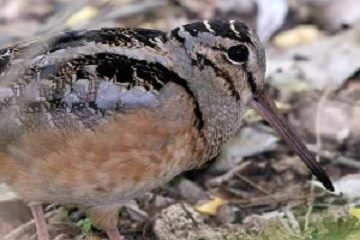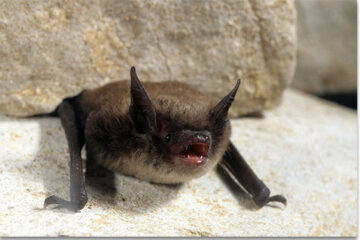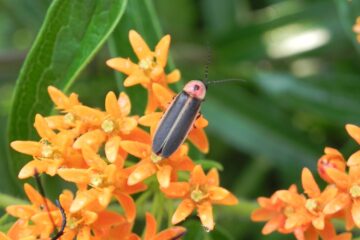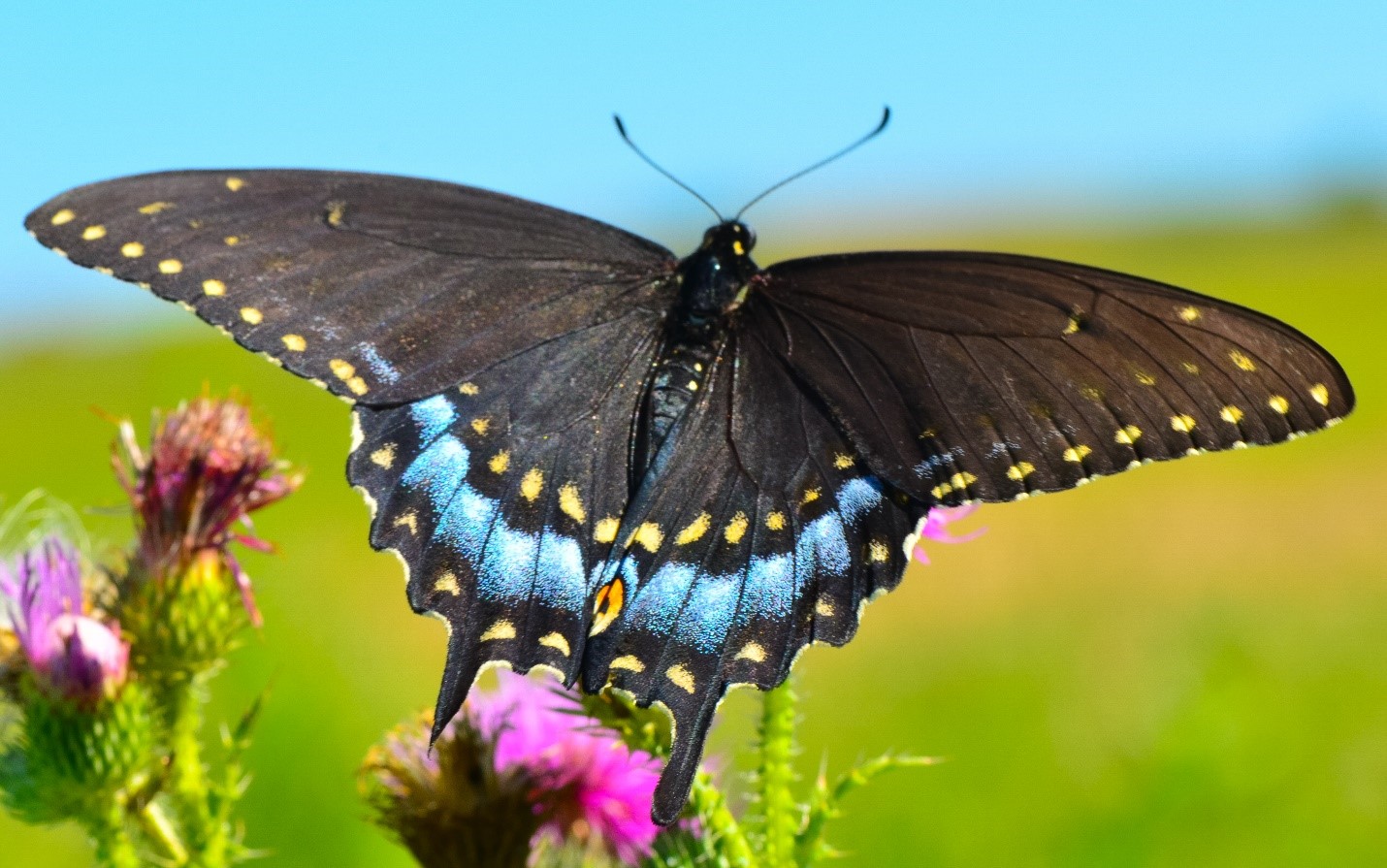
Female Black Swallowtail
Black Swallowtail Butterfly
Papilio polyxenes
Habitat: The black swallowtail butterfly is native to eastern North America. The butterflies can be found in meadows and fields and are attracted to butterfly bush, phlox, zinnias, purple coneflowers, and milkweeds.
Food: The butterfly feeds on nectar. The caterpillar eats plants in the carrot family: dill, parsley, carrots, and fennel. The caterpillar also likes Queen Anne’s lace.
Behavior: A full-grown caterpillar has an orange horn-like gland on its head called an osmeterium. If the caterpillar senses danger, it releases a foul smell from this gland. The black swallowtail flies faster than other swallowtails.
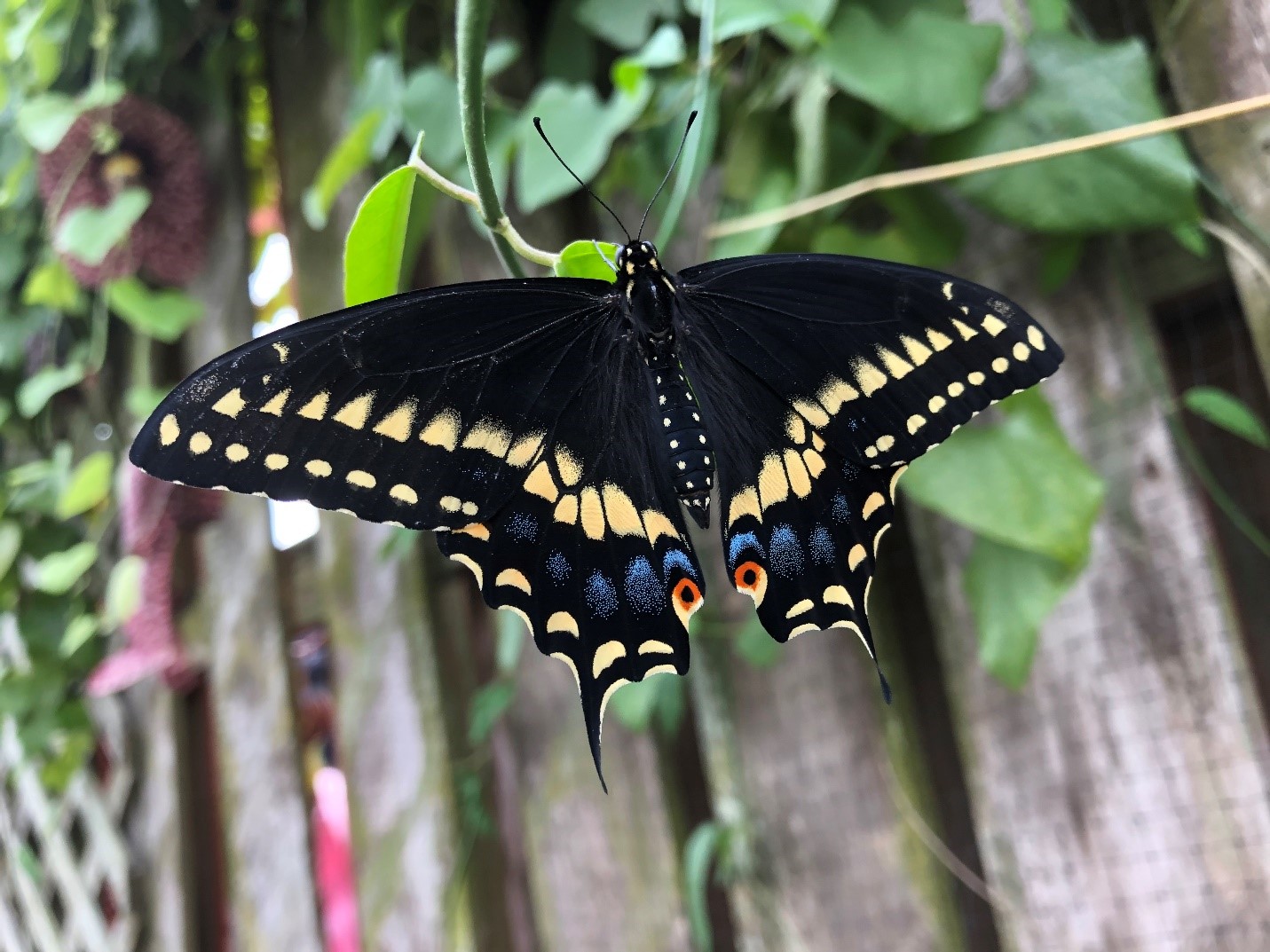
Male Black Swallowtail
Life Cycle: The female butterfly lays one yellow egg per host plant. After 4-9 days, a caterpillar (larva) hatches from the egg. Over 10-30 days, the caterpillar grows through 5 different stages (called instars) to a length of 2 inches. A young caterpillar is black; an older one is green. The caterpillar then creates a chrysalis (pupa) and metamorphosizes into an adult butterfly after 9-18 days.
Interesting Facts: The black swallowtail butterfly is the official state butterfly of New Jersey. Governor Chris Christie signed the bill in January 2016. The genus name “papilio” is Latin for butterfly. “Polyxenes” is from King of Troy’s daughter, Polyxena, from Homer’s book The Iliad. The female butterflies are typically larger than the males.
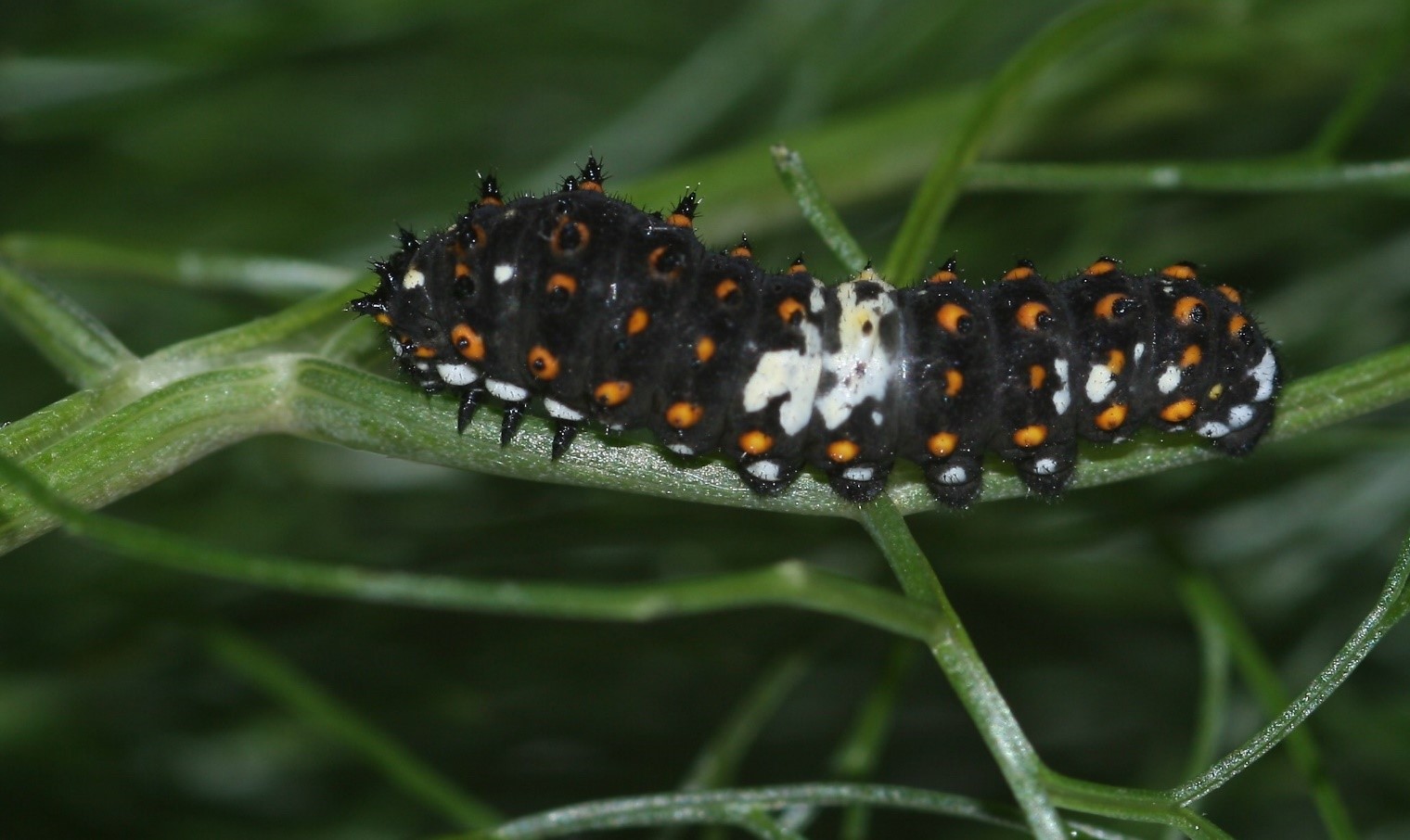
Young Caterpillar
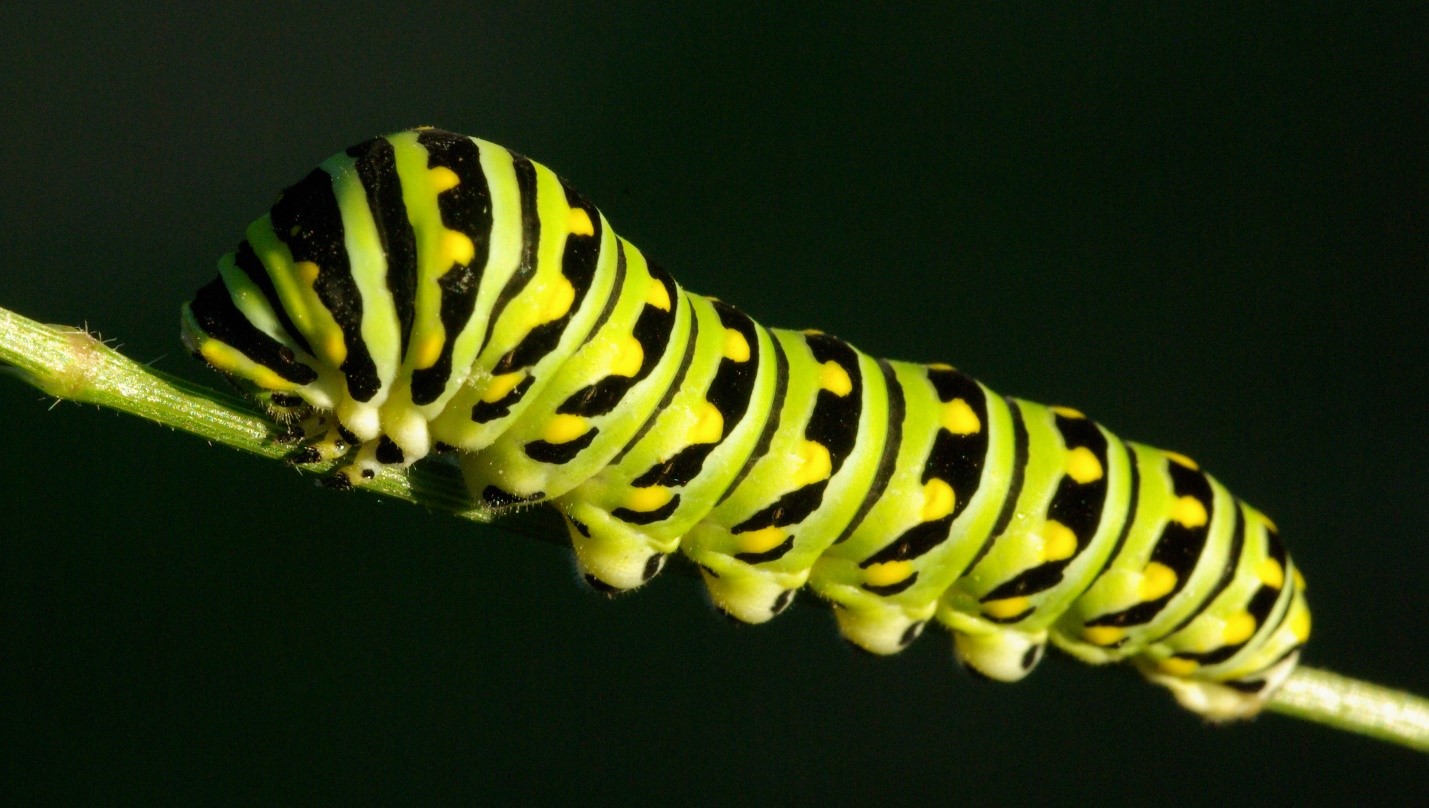
Older Caterpillar
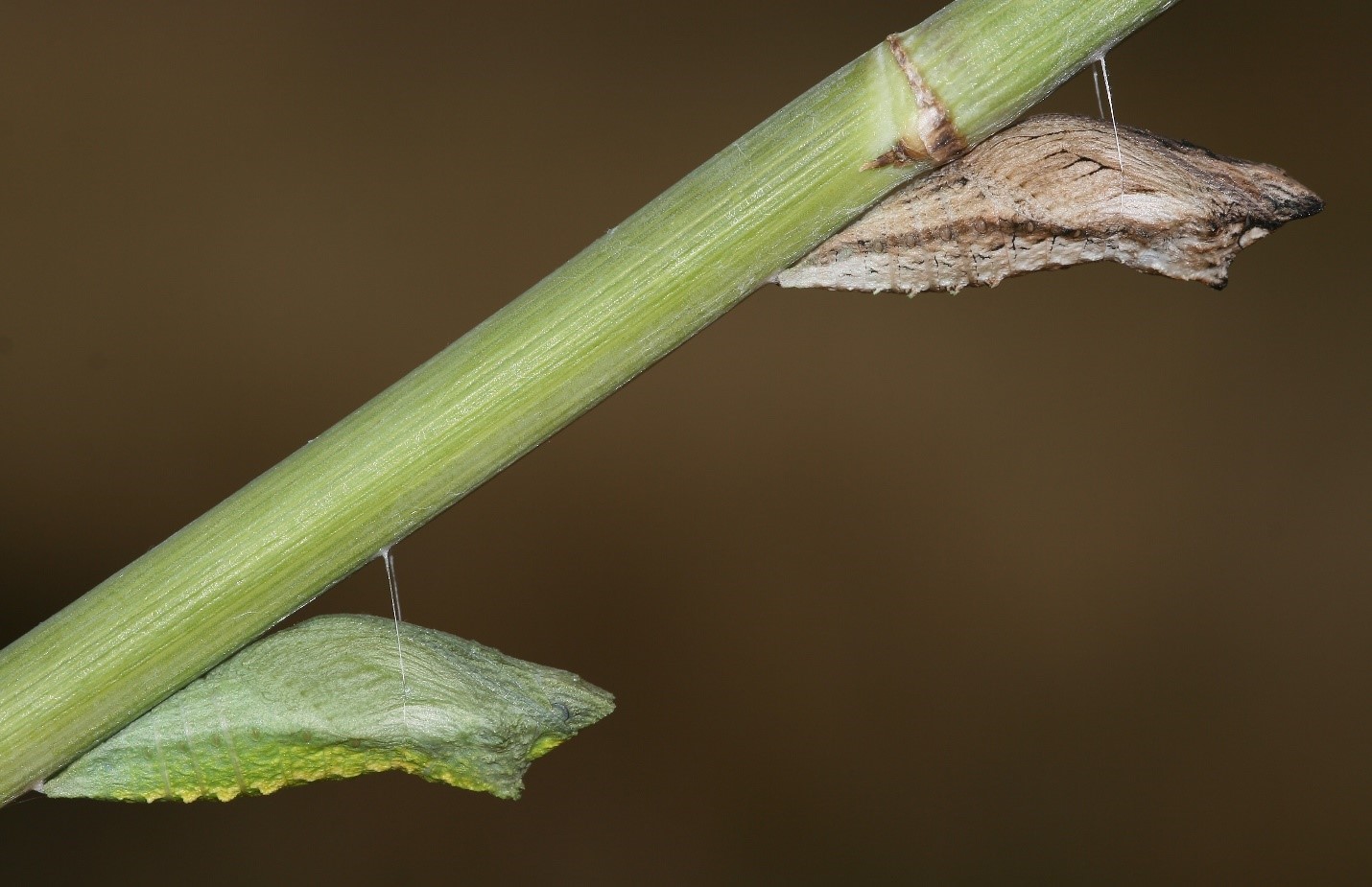
Chrysalis
Resources:
https://www.naba.org/chapters/nabanj/butterflies/black_swallowtail.html
https://statesymbolsusa.org/symbol-official-item/new-jersey/insects/black-swallowtail-butterfly
https://www.nj.com/hunterdon/2016/03/how_a_hunterdon_resident_helped_nj_name_a_state_bu.html
https://en.wikipedia.org/wiki/Papilio_polyxenes
http://edis.ifas.ufl.edu/in906
https://kidsgardening.org/growing-guide-plants-black-swallowtail-butterflies/
https://kids.kiddle.co/Black_Swallowtail
Please share any questions, comments, or photos that you and your child have on the Raritan Headwaters Learning Community Facebook Page!
More Raritan Headwaters Learning Resources

